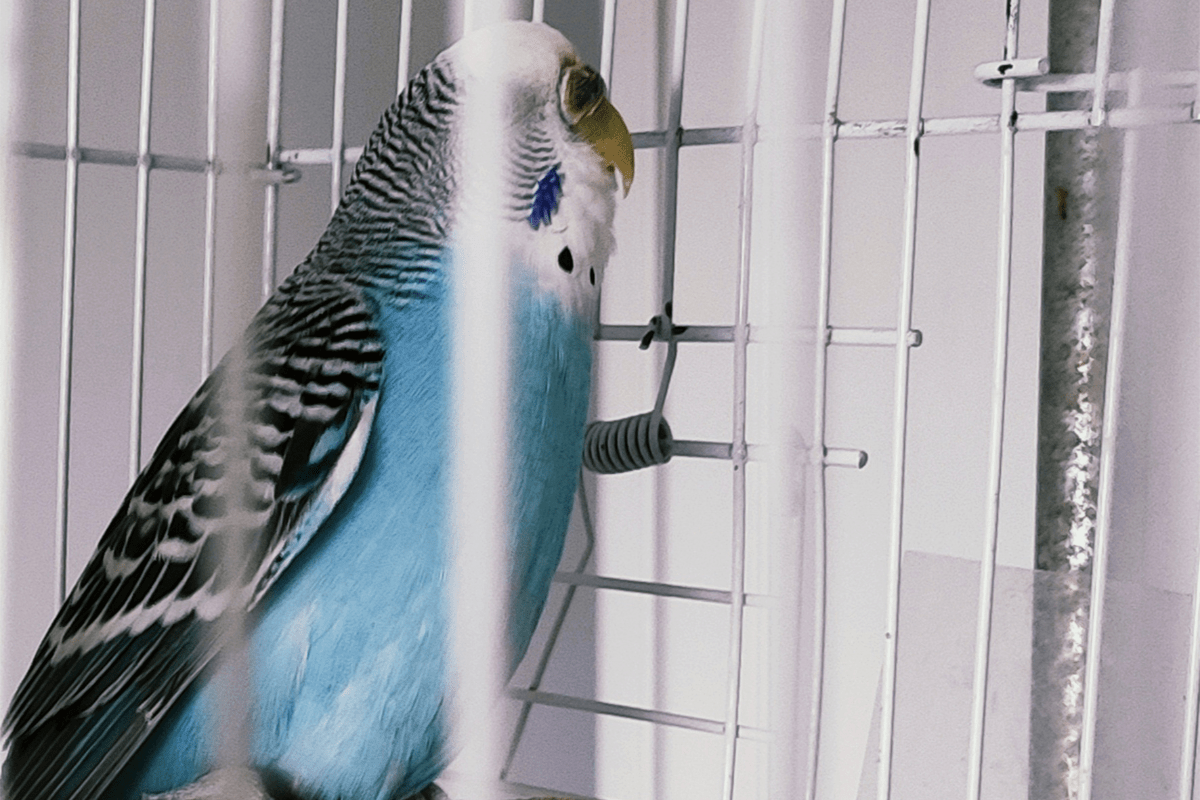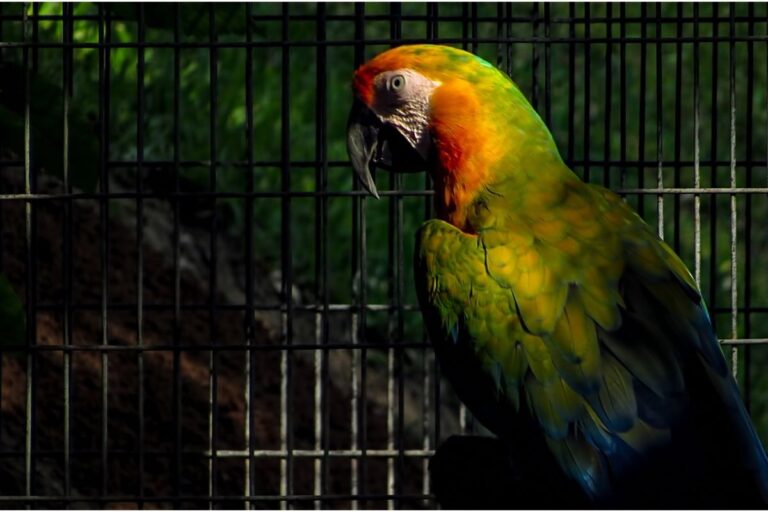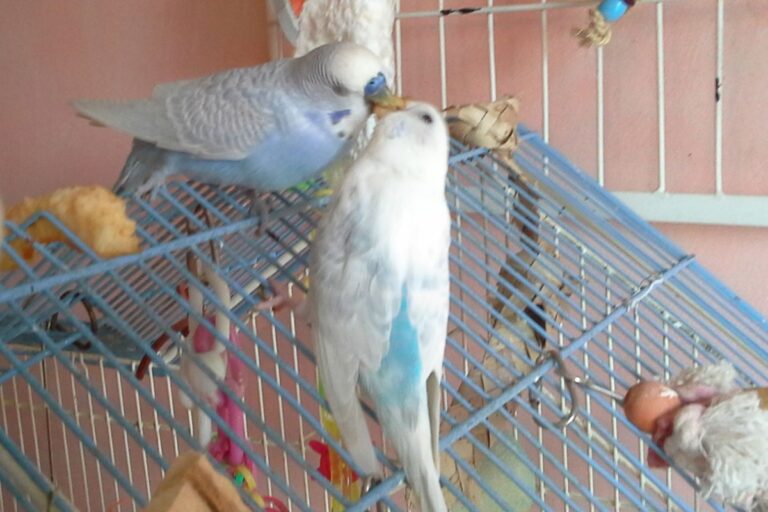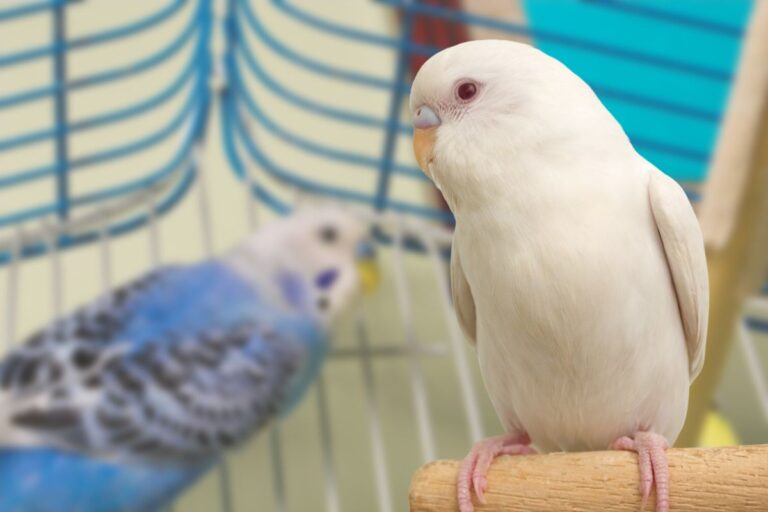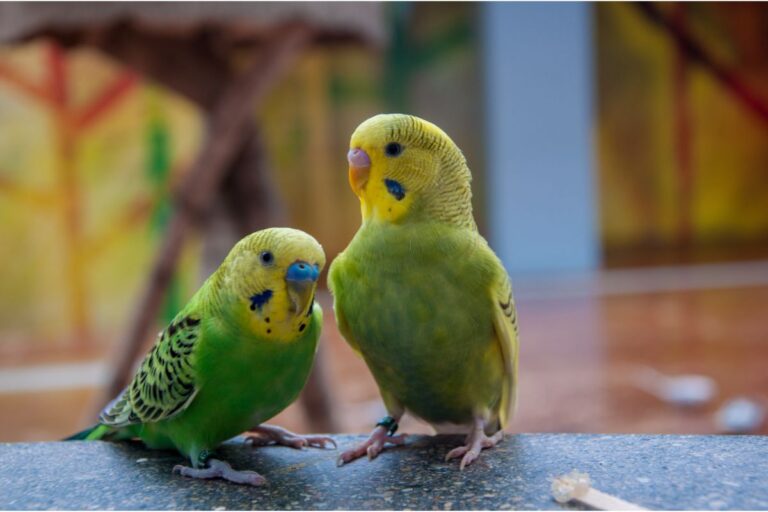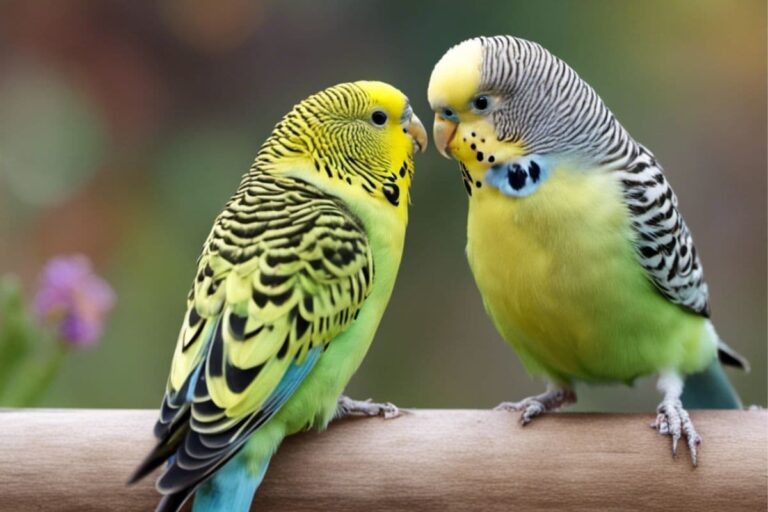Can You Leave a Parakeet Alone
Disclosure: The opinions expressed in this post are my own. This post may also contain affiliate links, which means that I will receive a commission if you decide to purchase through my links, at no additional cost to you. As an Amazon Associate, I earn from qualifying purchases.
Owning a parakeet also comes with a great responsibility to ensure their well-being. One of the concerns that many parakeet owners have is whether it’s okay to leave their parakeets alone for extended periods.
While it’s important to spend time with your parakeet and provide them with proper care, there may be times when you need to leave them alone. But how long can a parakeet be left alone?
The answer depends on several factors, mainly their social needs, age, health and personality.
Adult parakeets can generally tolerate being alone for a few hours each day, while younger birds or those with health issues may require more attention. It’s also important to note that each parakeet has a unique personality and may have different needs when it comes to alone time.
Is It Ok to Leave Your Parakeet Alone?
Parakeets are social animals and thrive on interaction with their owners. However, they can be left alone for short periods of time as long as their basic needs are met. It is recommended that you do not leave your parakeet alone for more than 24 hours without someone checking on them.
If you need to leave your parakeet alone for an extended period of time or plan to go on a vacation, consider hiring a pet sitter or asking a trusted friend or family member to check on them. This will ensure that your parakeet is getting the attention and care they need while you are away.
Overall, while parakeets can be left alone for short periods of time, it’s important to make sure their basic needs are met and they have access to food, water, and a comfortable environment.
How Long Can My Parakeet Be Left Alone?
There are several factors that determine how long you could possibly leave them alone—mainly their social needs, age, health, and personality.
1. How Old is Your Parakeet?
Generally, healthy adult parakeets can tolerate being left alone for up to 24 hours, while younger birds may require frequent attention. It is important to ensure that they have access to food and water during this time. You can leave plenty of food and water in their cage, or use a timed feeder to ensure that they are fed at regular intervals.
However, being left alone for such an extended period of time should not be commonplace. You should be keeping your parakeet in company throughout the day, and only reserve such extended times away occasionally.
2. Does You Parakeet Have Any Health Issues?
Another factor to consider is the bird’s health. If your parakeet has any health issues or is recovering from an illness, it may require more attention and care. In this case, it is best not to leave it alone for long periods of time at all.
If your parakeet has any ongoing health issues, it’s best to have someone check on them regularly. For example, if your bird has a respiratory infection, they may require medication or special care that cannot be provided by an automated feeder or water dispenser.
3. Is Your Parakeet Very Attached to You?
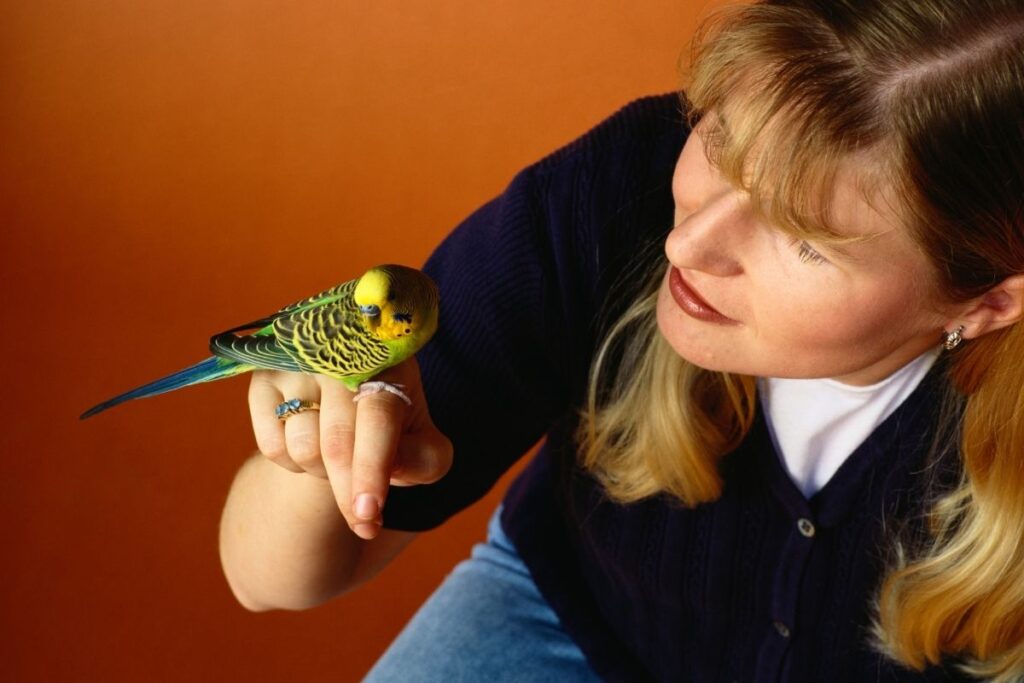
If your parakeet is very attached to you, they may become too stressed or anxious when left alone for long periods of time or even just a few hours. The amount of time your parakeet can be left alone depends on their individual personality and behavior, as well as their living environment.
If you do have to leave your parakeet alone, there are a few things you can do to help ease their anxiety. First, make sure they have plenty of toys and activities to keep them occupied while you’re away. You can also leave a piece of clothing or other item with your scent on it in their cage to provide a sense of comfort.
Another option is to gradually train your parakeet to be more independent and comfortable with being alone. Start by leaving them alone for short periods of time, gradually increasing the amount of time you’re away. Reward them with treats and positive reinforcement when you return, and soon they may become more comfortable with being alone.
4. Does Your Parakeet Have Another Companion Bird?
Parakeets require attention and interaction to thrive. If you are planning on leaving your parakeet alone, it is important to consider how long they can be left without any companionship.
However, if you have more than one parakeet, they can keep each other company and may be able to be left alone for up to 24 hours fairly comfortably, provided that basic needs are met. It is important to note that even if you have multiple birds, they still require daily attention and care, such as fresh food and water, cleaning their cage, and providing toys for stimulation.
What Should You Prepare Before Leaving Your Parakeet Alone?
Before leaving your parakeet alone, there are a few things you should prepare to ensure their safety and comfort. Let’s take a look at the most important ones.
1. Food & Water
When preparing to leave your parakeet alone, make sure their food and water dishes are clean and filled with clean water and fresh food. You may also want to consider investing in a gravity-fed water dispenser and food hopper to ensure your parakeet has access to food and water at all times.
2. Cage is Well Secured
Before leaving your parakeet alone, it is crucial to ensure that its cage is well secured. This means checking that all locks, latches, and doors are properly closed and that there are no gaps or holes in the cage that your bird can escape from. Additionally, you should make sure that the cage is placed in a safe and secure location where it cannot be knocked over or accessed by other pets, children, or hazards such as open windows or doors.
3. Provide Plenty of Toys & Puzzles
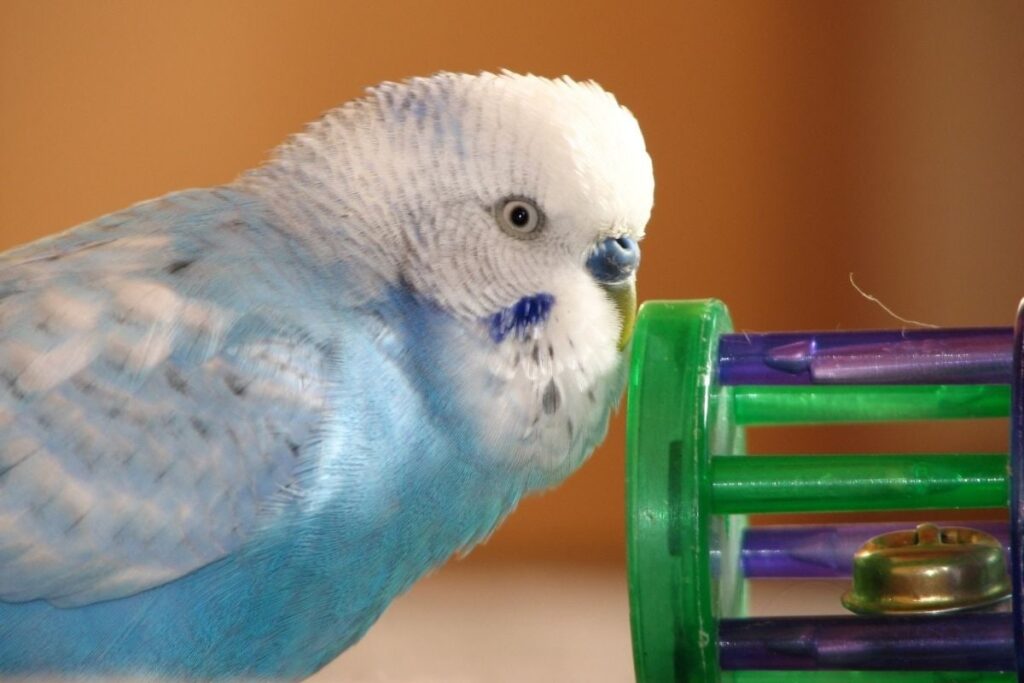
Also be sure to prepare their environment to ensure they have enough stimulation and entertainment while you’re away. One way to do this is by providing plenty of toys and puzzles.
Parakeets are intelligent and curious birds that need mental and physical stimulation to stay healthy and happy. Some examples of toys and puzzles that parakeets enjoy include:
- Swings
- Chew Toys
- Puzzle Feeders
- Perches
4. Set Up a Security Camera
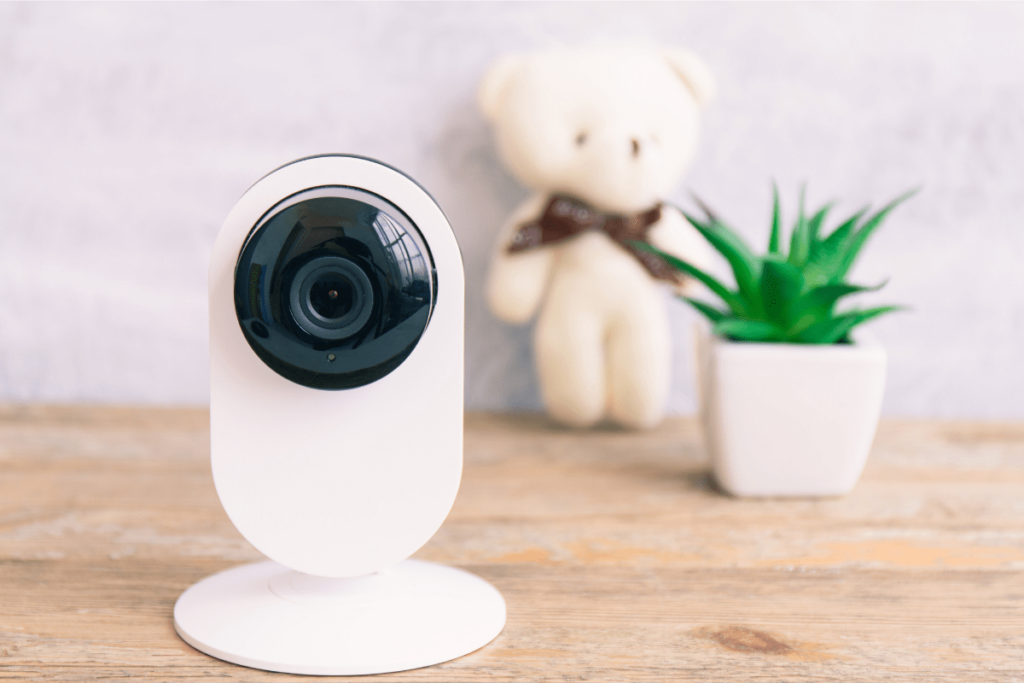
A security camera can provide you with peace of mind by allowing you to check in on your parakeet while you’re away. You can use a traditional security camera or even a baby monitor to keep an eye on your bird. Before you leave, make sure the camera is set up and working properly.
5. Create a Routine
Your sudden absence for an extended period of time may be anxiety-inducing for your parakeet. If you’re able to slowly create a routine so that your parakeet is able to expect when you’ll be away, and how long for, then it’ll be much easier for your parakeet to adjust to the change in environments.
6. Have an Emergency Contact
It’s also a good idea to leave a contact number for someone who can check in on your parakeet in case of an emergency. This could be a friend or family member who lives nearby and is familiar with your bird and knows how to care for them.
What to Do If Your Parakeet Displays Unusual Behavior While You are Away?
Boredom and loneliness are two factors that can lead to a case of the “zoomies”. When your parakeet is home alone for too long, it may start zooming around his cage like a madman, flapping its wings wildly and climbing to the top of his perch only to dive bomb back down again. If your bird is healthy and has a good diet, there’s no need to worry at this point—these frenzied episodes are short-lived. Here are some ways to minimize the chances of your parakeet acting up while you are away.
1. Keep Your Parakeet Entertained
As mentioned earlier, provide your parakeet with plenty of toys and activities to keep them occupied. This can include puzzles and toys. Rotate their toys frequently to prevent boredom and ensure they always have something new to play with.
2. Ensure There’s Plenty of Natural Light During the Day
Ensure that there is plenty of natural light in their environment. This will help to regulate their circadian rhythm and keep them calm and content while you are away.
3. Put on Some Calming Music or Turn On the TV
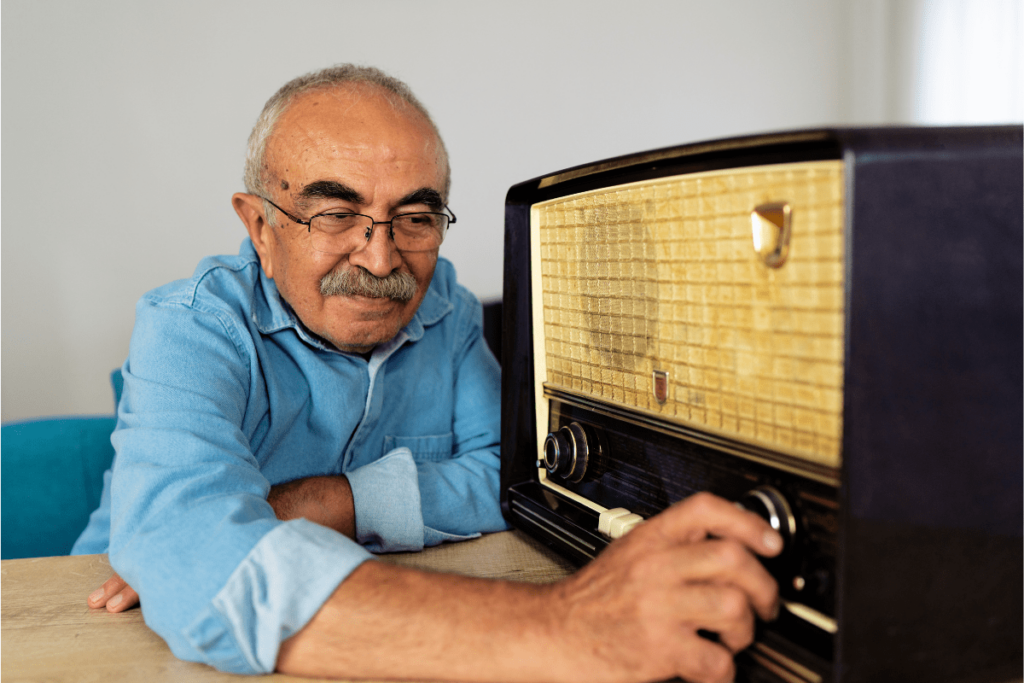
You can also leave some soothing music or nature sounds playing in the background. This can help to calm your parakeet and make them feel more relaxed. Alternatively, you can turn on the TV and leave it on a nature channel or a program that features birds or other animals.
4. When It Gets Too Serious
However, it can be concerning if you find your parakeet displaying more serious and unusual behavior while you were away. Some signs to look out for include excessive vocalization, feather plucking, or lethargy. If you notice any of these behaviors, it’s important to take action immediately and alter your plans so that you can minimize extended periods of time away.
Final Words
Leaving a parakeet alone for extended periods of time is not recommended, as these social creatures thrive on interaction and will become lonely and bored without it.
But it’s understandable if something important comes up which requires you to be away for an entire day. In these cases, it’s important to take the necessary precautions and provide your parakeet with plenty of enrichment and stimulation while you are away.
With the proper care and attention, your parakeet should stay healthy and happy until you return.



